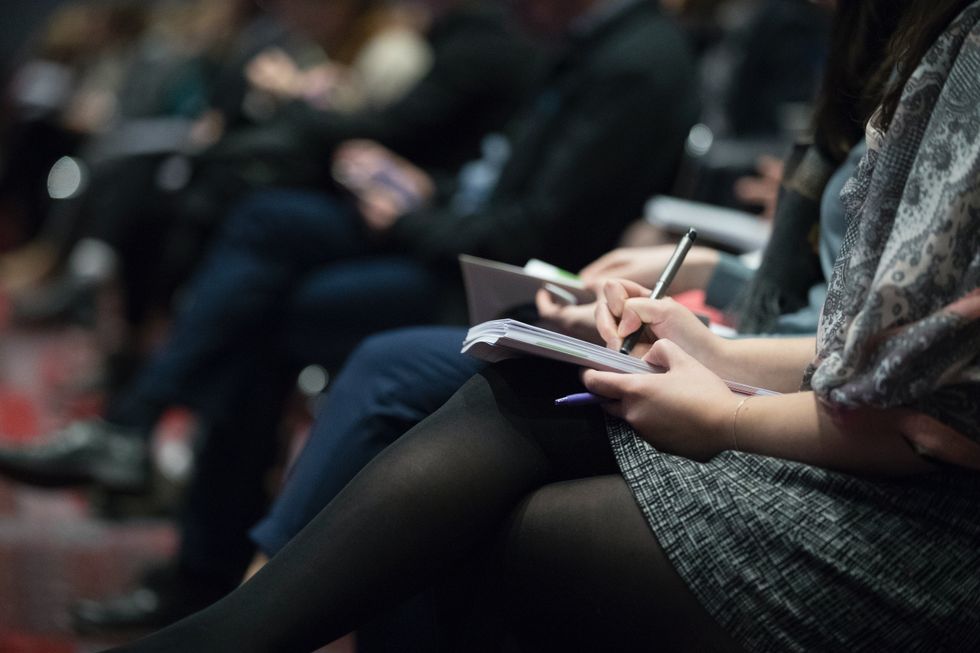A boy, about eight or nine years old, learns about a reporter's job. Transfixed on the excitement of stories within such a career, he reads the morning and afternoon papers his parents receive every day. About 62 years later, the boy is teaching aspiring students of this craft.
Glenn Miller has worked in the newspaper industry as a journalist for 48 years and now works as a teacher for the journalism department at Florida Gulf Coast University.
"Because I'm biased I think being a journalist is a sacred thing," Miller said.
Miller started his career as a reporter working for the St. Petersburg Evening Independent newspaper in 1975. His first story was covering a football game at Boca Ciega High School.
Miller accepted a job offer as a sports journalist from Fort Myers News Press in 1987. He stayed there for 25 years and was offered a buy-out in 2012. Miller then chose to work as a freelance writer for eight years before being asked to become an instructor for the News Literacy course at Florida Gulf Coast University.
Working for newspapers, Miller had opportunities to travel to legendary places in the world of sports. Some of the most notable venues he has been sent to include Fenway Park in Boston, the Carrier Dome in Syracuse, and the Superdome in New Orleans.
"I covered everything from Little League games to Super Bowls, bocce to bowling, sailing to cycling," Miller wrote on his blog, Glenn Miller Writes.
During his career, Miller interviewed celebrities such as O.J Simpson, George W. Bush, Debbie Reynolds, Roger Clemens, Shirley MacLaine, Al Oerter, Mickey Mantle, and Mark Fidrych.
Miller recalls his experience interviewing Fidrych, a baseball star from the Detroit Tigers. "He was this shooting star across the baseball landscape in the 1970s. This very colorful and eccentric player… He would be on the mound and talk to the ball… People loved him all across the country. He was like folklore," Miller said.
One day, when Miller lived in St. Pete, he was relaxing in his living room. He was laying back, watching a ball game, and reading a book. Miller's roommate walked in with Fidrych, years after Miller interviewed him. This caught Miller off-guard in the moment. Miller recalls how he got up from his chair and started playing ping pong with his roommate and Fidrych while having a few beers in their living room.
Throughout all of the experiences that Miller had with his job, his parents carried the most influence on his career as a journalist. "When I was a kid they subscribed to two newspapers every day, a morning paper and an afternoon paper," Miller said. "There were always books around the house and they encouraged reading. That's where [my career] started."
It was easy for Miller to decide to pursue a career in journalism at a young age."I thought it would be a fun job," Miller said. "That no day would be like any other day. That you would get to learn about lots of different things."
Miller had never taught anything before he was asked by Professor Lyn Millner at Florida Gulf Coast University to teach a course called News Literacy.
"I knew she was looking for another preceptor. I had never before been offered a teaching job and was flattered beyond measure," he said.
Miller received the position while he was at a Starbucks 150 miles north of campus in Dunedin. He was standing in line when he got a phone call from an unfamiliar number. "It was Professor Millner. When she asked me to be a preceptor, I considered it an extraordinary honor."
Miller said the most important factor which prepared him for a teaching position was his experience with meeting people in his career as a journalist. "I think meeting and interviewing thousands of people from all over helped prepare me to teach. I remember telling Professor Millner once that the 40-some years I spent in journalism were all training to be a News Literacy preceptor."
The most important lesson students can take away from Miller's class is that of accuracy. Miller claims, "The three most important rules in journalism are accuracy, accuracy, and accuracy."
Miller has always considered it an immense privilege to be able to teach the future generation of journalists.
"Being asked to work with students... is a profound privilege. I never lose sight of that."

















